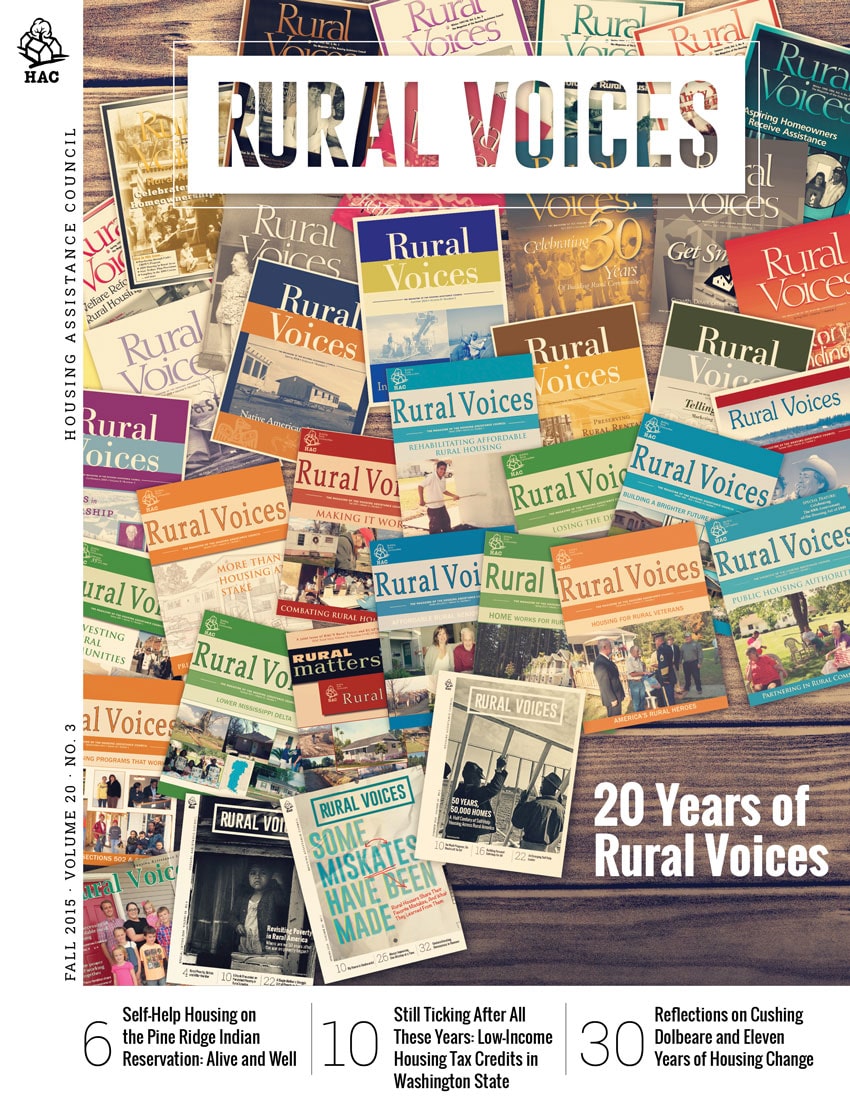20 Years of Rural Voices
Rory Doyle / There Is More Work To Be Done
Rory Doyle / There Is More Work To Be Done
by Congressman Bennie G. Thompson
 This story appears in the 2015 Fall Edition of Rural Voices
This story appears in the 2015 Fall Edition of Rural Voices
Rural America is still a fundamental part of the fabric that holds this great nation together. Unfortunately, the pace of our economic growth and quality of life continue to lag behind those of our urban neighbors. People in rural America are still more likely to reside in substandard housing, receive inadequate education, and live in a community that is medically underserved.
by Congressman Bennie G. Thompson
 This story appears in the 2015 Fall Edition of Rural Voices
This story appears in the 2015 Fall Edition of Rural Voices
Rural America is still a fundamental part of the fabric that holds this great nation together. Unfortunately, the pace of our economic growth and quality of life continue to lag behind those of our urban neighbors. People in rural America are still more likely to reside in substandard housing, receive inadequate education, and live in a community that is medically underserved.
Despite these challenges, people in rural America remain resilient and hopeful that better times are ahead. We, the federal government, can help them if we refocus our efforts to improve their quality of life through programs that have proved to be effective and economical.
With the current crazed obsession with reducing government programs dominating the narrative in Washington, it is more important than ever that we continue to vocalize the need for continued investment in affordable housing options in this country. Nowhere is this more important than in rural America where a quarter of our children live in poverty.
A look at some of our more successful programs shows that rural housing programs are under attack and need more advocates to fight for their survival. The Section 502 direct loan program is USDA’s flagship housing loan program and is designed to help low-income families purchase houses specifically in rural areas. Funds can be used to build, repair, or renovate a house, including providing water and sewage facilities. The program provides fixed-interest mortgage financing to low-income families who are unable to obtain credit elsewhere. The program also provides “supervised credit” including pre-loan and post-loan credit counseling to its borrowers to help them maintain their homes during financial crises. To date, this program has assisted more than two million families to increase their wealth by $40 billion. The program has seen a significant decline in enacted loan authorizations over the past decade, however. The fiscal year 2005 authorization was $1.14 billion. Today, the program is authorized at $900 million.
Unfortunately, the pinch doesn’t stop there. The Section 523 mutual self-help grant program allows low- and very low-income rural Americans to use “sweat equity” to reduce the costs of homeownership. Nonprofit organizations and local governments may obtain grant funds to enable them to provide technical assistance to groups of families that work cooperatively to build their houses. Typically, future homeowners use the aforementioned Section 502 direct loans to finance their mortgages and, through their own labor on constructing the houses, are able to reduce costs by 10-15 percent. This cherished program has seen its budget reduced from $34 million in fiscal year 2005 to $27.5 million in fiscal year 2015.
Rural rental housing is also at risk. USDA’s Section 515 loan program has not been able to fund any new rental units since 2011. The Section 521 Rental Assistance program, which helps low- and very low-income tenants pay their rent, ran out of funding in August or September 2015, leaving some landlords without reimbursement for the last month of the fiscal year. Because of the way funds are allotted to specific properties, some will fall short on several months of funding.
For the sake of our constituents, this trend has to stop.
The federal government has always been on the forefront of investments in rural America. From the Tennessee Valley Authority bringing electricity to lower Appalachia to the construction of a sophisticated network of levees that has kept flood waters out of the Mississippi Delta, the federal government has always been there making forward-thinking investments that foster economic stability and advancement. Now is not the time to reverse course and simply leave opportunity for progress in our country to the profit-driven private sector.
Rural America possesses an abundance of untapped potential. Sure, the challenge is great but our dreams can be realized with wise investment by the federal government. It is time to recommit ourselves to building a nation for all Americans. I am ready to continue the good fight, and I know that you are, too. Hopefully, more of my colleagues will join us in improving housing conditions in rural America.
Mr. Thompson, formerly Mayor, Town of Bolton, MS and Supervisor, District Two, Hinds County, Bolton, MS, is currently the U.S. Representative of the 2nd Congressional District of Mississippi. He is the top Democratic member of the House Committee on Homeland Security. A lifelong activist in the civil rights struggle, Rep. Thompson has received honors from the National Conference of Black Mayors, USDA Rural Development Fellows, Mississippi Chapter of the NAACP, and the Ford Foundation. Directorships include the American Civil Liberties Union, the Housing Assistance Council, the Southern Regional Council, and the National Rainbow Coalition.